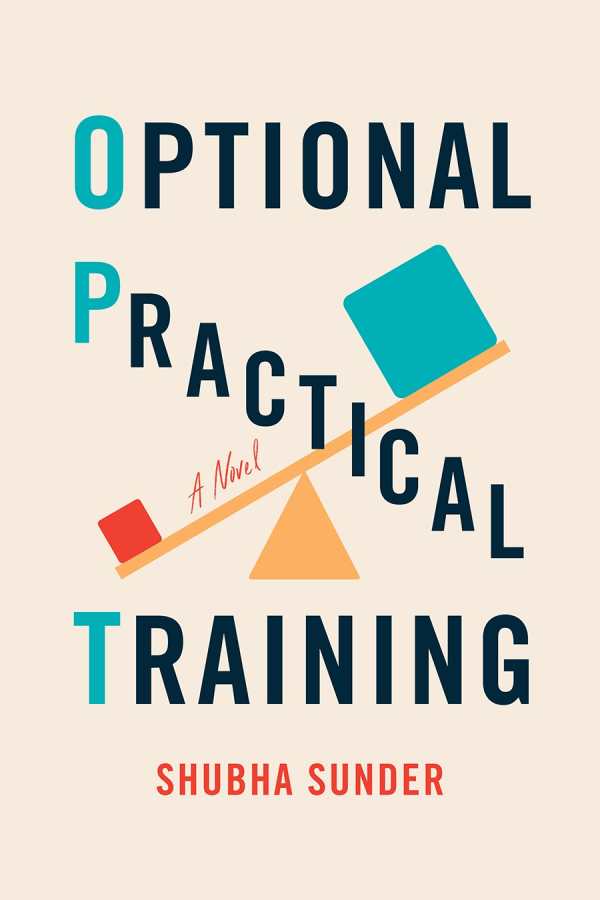Optional Practical Training
In Shubha Sunder’s novel Optional Practical Training, an Indian immigrant tries to make a home in the US.
After completing her undergraduate degree, Pavrita begins teaching physics at a school in Cambridge, Massachusetts, extending her student visa for another year with Optional Practical Training. Meanwhile, she pursues her novel-writing dreams. Her conversations with others raise overlapping, open-ended questions about perceptions of people of color, histories of immigration and colonialism, educational methods, and the path to success.
The novel is composed of Pavrita’s diverse talks with her friends, acquaintances, colleagues, students, and lovers, all connected to the interlocking, contentious facets of her identity: she is an immigrant, a person of color, a woman, an educator, and a writer. Stark, lengthy speeches divulge the varying attitudes of her interlocutors; some are encouraging, thoughtful, or passionate about, for example, the solidarity of “us brown and Black women.” Others are patronizing, argumentative, or deliver microaggressions, treating her “like a rare animal escaped from the zoo.”
Pressured to assimilate, Pavrita also faces criticism from her friends, family, and teachers in India who believe that she is betraying her Indian roots. She reconciles her regimented education in India, which required the memorization and mastery of the basics, to American teaching systems that stress catering to individual students and “customer” satisfaction. And though her knowledge in the sciences seems to provide career stability, Pavrita clings to her writing, negotiating the limits of artistic empathy, feeling the imperative to write for an “American perspective,” and remembering “reading books by … writers who’d never considered it their job to help little brown children in the tropics understand cold, white, Western worlds …. without complaining, with joy even.”
Following an Indian woman’s year spent teaching in the US, the incisive novel Optional Practical Training investigates the self-perceptions of immigrants.
Reviewed by
Isabella Zhou
Disclosure: This article is not an endorsement, but a review. The publisher of this book provided free copies of the book to have their book reviewed by a professional reviewer. No fee was paid by the publisher for this review. Foreword Reviews only recommends books that we love. Foreword Magazine, Inc. is disclosing this in accordance with the Federal Trade Commission’s 16 CFR, Part 255.

